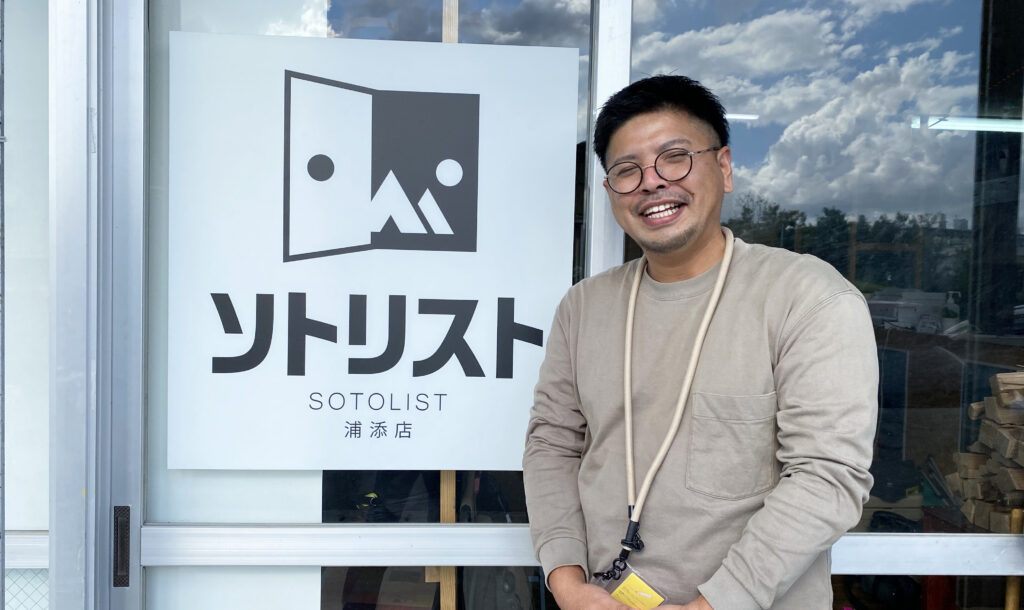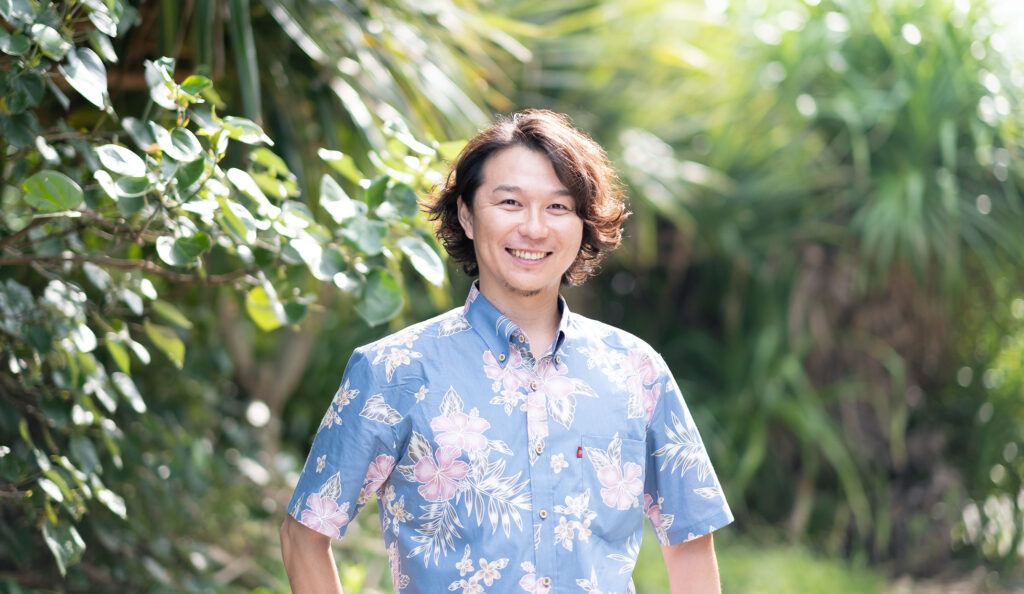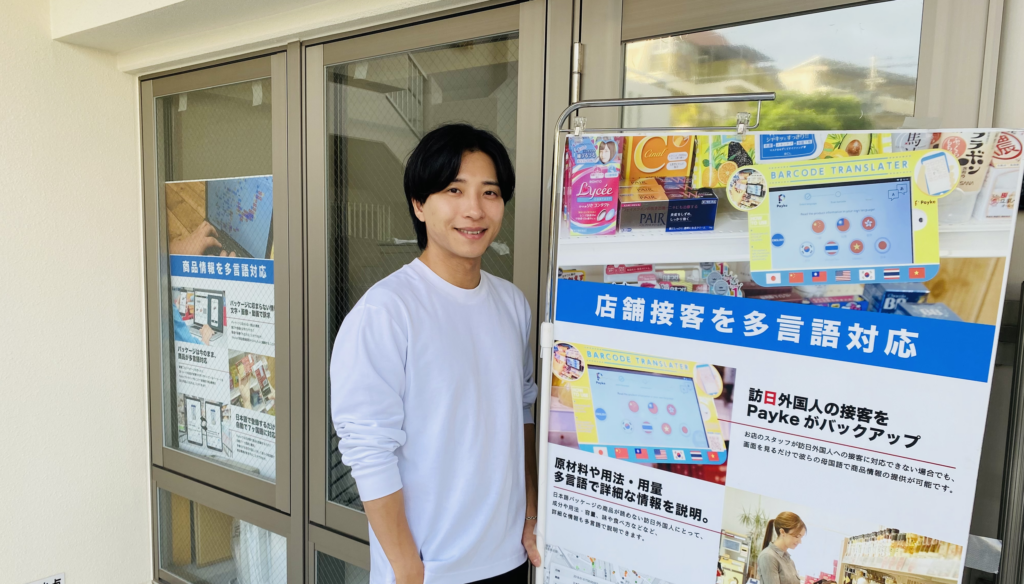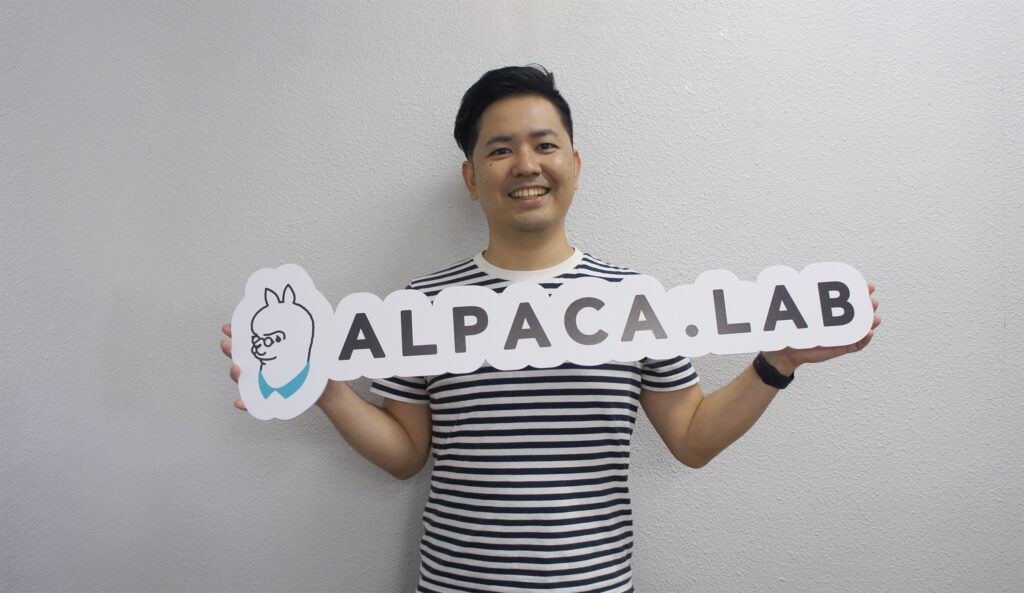When starting a business that has never been done before, it’s common to feel a mix of excitement, determination, and a hint of anxiety. However, there is a company that started with the idea of “turning our hobbies into something beneficial for society,” and unexpectedly became Japan’s first in its field, attracting attention and gaining recognition as one of Okinawa’s leading startups due to its unexpectedly high demand. We spoke with Shinya Yamada, the representative of URAKATA Co., Ltd., who hails from Ishigaki Island.
Starting from a sense of crisis amidst the COVID-19 pandemic and a passion for their interests, a sharing business was launched.
The concept of Okinawa’s first outdoor sharing service, “Sotorist,” is simple. It involves storing camping equipment from individuals and renting it out to those in need. Both registration processes can be done online. A portion of the rental fee is paid to the owner as compensation, and maintenance and cleaning of returned items are handled by Sotorist. Owners can also retrieve their items from the store when needed. It’s a system that benefits both the owner and the renter. Additionally, through the same website, it’s possible to make reservations at camping sites in the Okinawa area.
The founder of this business, Mr. Yamada, previously worked in the web-related direction and consulting fields within the web solution industry. In 2017, he established URAKATA Co., Ltd. Initially, it operated as a shared office space for freelancers, including himself, along with serving as a hub for work-related matters. At that time, a corner of the company’s shelves was occupied by fishing and camping gear, which reflected his personal interests. While business was going well, the COVID-19 pandemic posed a threat to URAKATA.
“This crisis, which caught Japan off guard, also sparked within me a desire to create mechanisms that allow us to leverage our passions for the benefit of society. I felt that amidst my involvement in client work, I wanted to take on the challenge of creating something that allows us to utilize our interests for the greater good. So, I thought, why not take on the challenge of fully committing to a business in something I love, like the great outdoors and camping?”
With the help of former colleagues who introduced him to the joys of camping and fishing, Mr. Yamada hastily built the Sotorist website. Being specialized in the digital domain, the company managed to create a beta version of the site in about one month, a task that usually takes around two months. They also outsourced the development of the backend system to a partner they had worked with before, swiftly advancing the business into fruition.
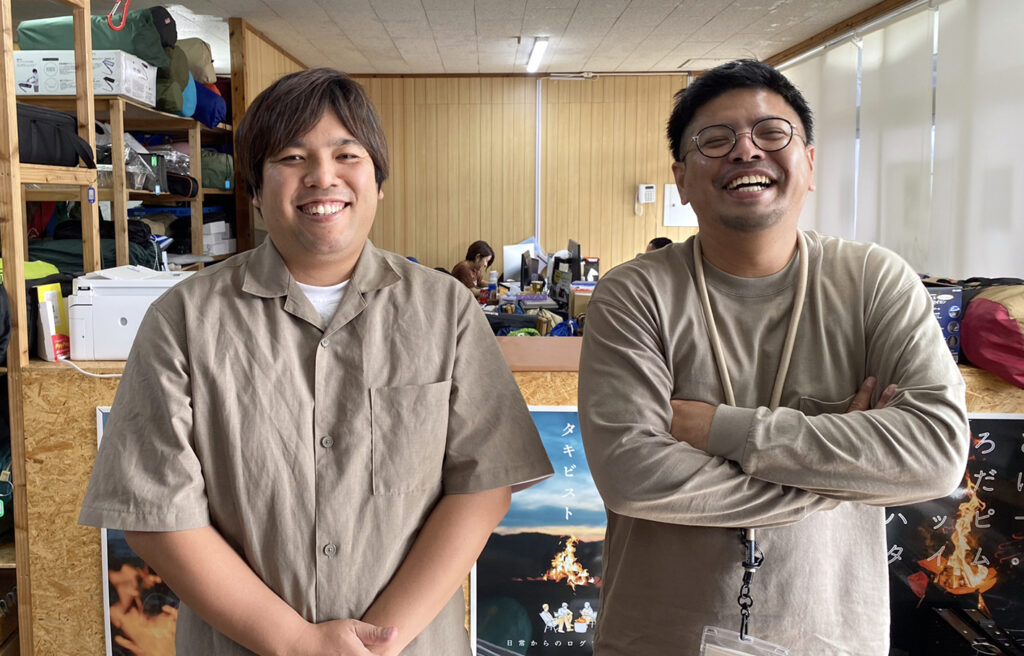
The initial costs of starting up were minimal, covering only the essential parts of running the system, such as development and server infrastructure. Thus, Japan’s first outdoor sharing service started smoothly, and began to gain significant traction after being featured in a newspaper article.
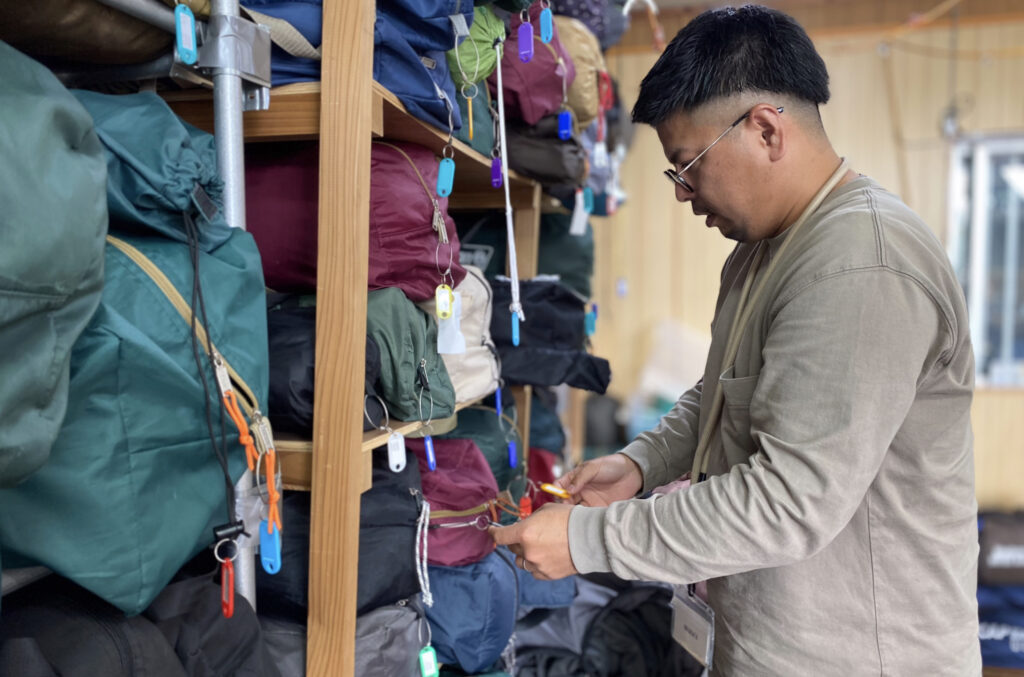
Mechanisms supporting beginners
reach the inbound demand as well
As the COVID-19 pandemic entered full swing, camping surged in popularity as a leisure activity that could avoid the three Cs (closed spaces, crowded places, and close-contact settings), leading to a significant spike in demand in the outdoor market. In 2021, Sotorist opened its second store in Nago, and in April 2022, it launched the Kawaguchiko store at the foot of Mt. Fuji. Subsequently, with the worsening of the COVID-19 situation, most camping sites closed, leading to a downturn in Sotorist’s demand, reflecting the impacts, both positive and negative.
“Once the pandemic subsides, and people can freely enjoy camping again, accompanied by an increase in companions, we are seeing that the rental numbers have been growing,” says Mr. Yamada. He notes that before COVID-19, the camping population was increasing by around 100,000 people annually nationwide, and they are now gradually returning to that trend.
For those who want to start camping, Sotorist is experimenting with how to expand the rental options and price settings. A significant aspect of this effort is the system of “return without cleaning,” designed to support beginners.
“For example, some people live in apartment buildings without washing or drying areas, or they may not know how to clean a tent. With such inconveniences, people might hesitate to go camping casually. So, although it’s challenging, we feel it’s our responsibility to provide this service,” Yamada laughs.
Furthermore, this cleaning system seems to be linked to an increase in reservations from inbound tourists after COVID-19. For foreign tourists who find it difficult to bring bulky camping equipment from their home countries and struggle to find cleaning facilities after use, Sotorist offers a new form of tourism in Japan that was previously unavailable.
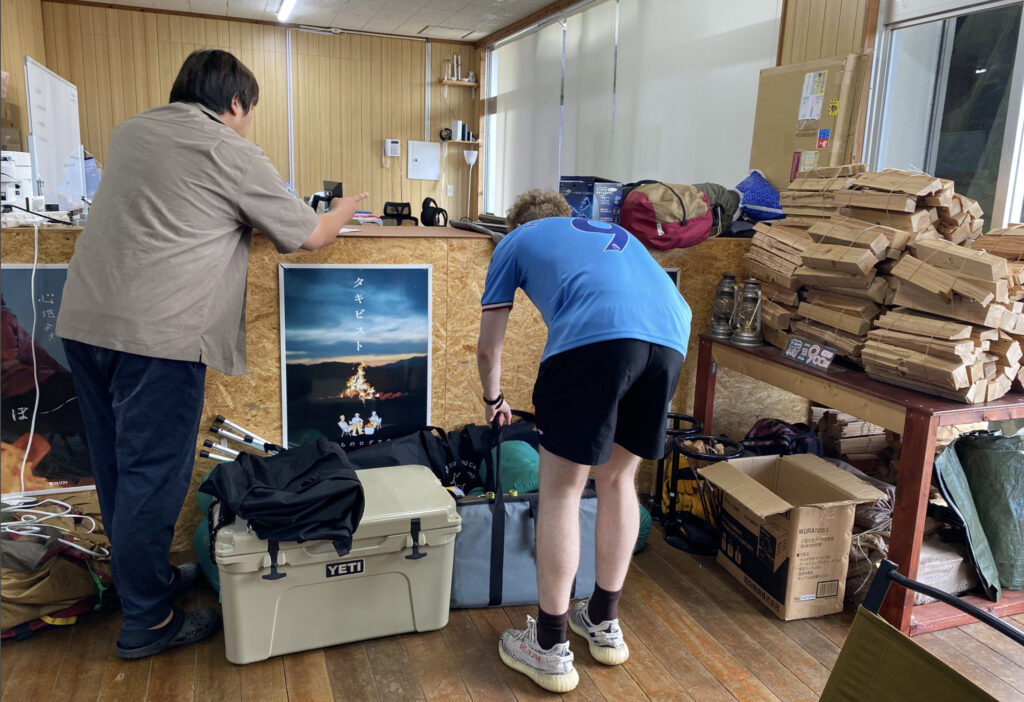
“Even at our Kawaguchiko store in Yamanashi, there are often 5 to 6 reservations per day — especially on weekends — from overseas customers, including those from Taiwan and South Korea. While they want to enjoy resort tourism, there’s a growing trend towards customized and personalized travel experiences,” notes Mr. Yamada.
Anticipating Needs and Launching New Services
Next: Creating an All-in-One System
Currently, the Kawaguchiko store offers a service where equipment can be delivered to designated locations in the Kanto region with reservations made three days in advance. Additionally, they’ve started a nationwide tent cleaning service via mail for campers. It became highly popular through word of mouth, and during a rainy autumn camping season, they received over 40 cleaning requests in a single day.
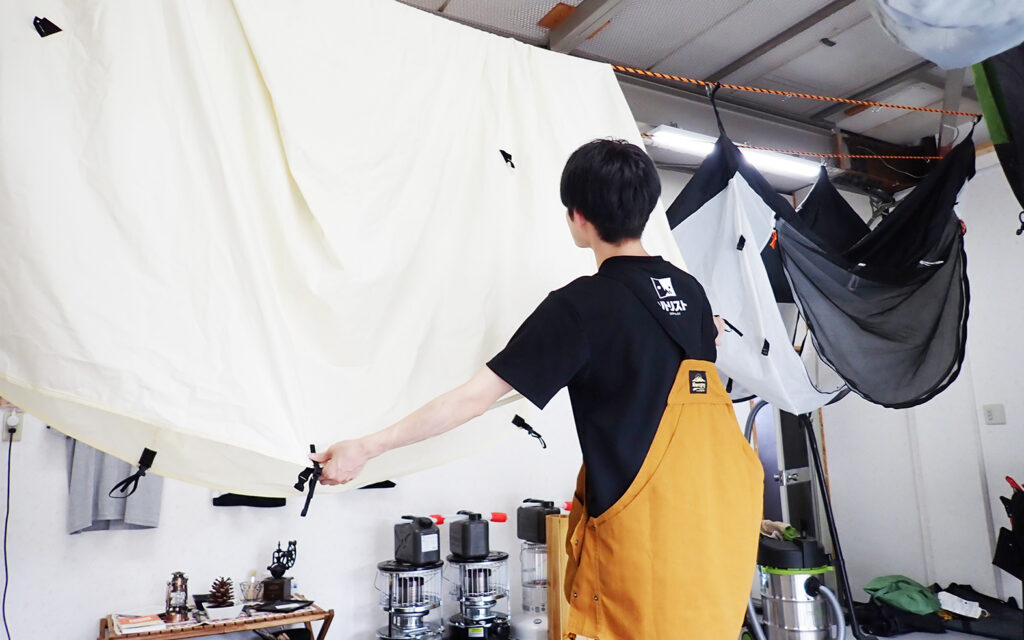
As for future new services, they are considering launching a premium plan that does not require bringing items, as well as a new paid deposit plan for customers who want cleaning, storage, and delivery without renting. “For users of the paid deposit plan, if their frequency of bringing items decreases, we can suggest transitioning to a sharing plan, and ultimately, if they no longer need the equipment, we can take care of secondary sales. We believe this will create an all-in-one system with a high lifetime value in terms of user relationships,” says Mr. Yamada.
As of early November, when this interview was conducted, they had already decided to open their fourth store in Kyushu. They are also considering expanding their stores to the Kansai area. “As the number of stores and users increases and the regions expand, we expect needs to diversify. So, we aim to realize store functions and new services accordingly,” said Mr. Yamada, further maintaining an aggressive stance towards the company’s growth.
Aiming for a World Where “Adults Play More”
Promoting a Culture of Healthy Living
“When asked what you want to achieve through this business?” Mr. Yamada answered with a smile, “Creating a world where adults can immerse themselves in play.”
“It has been scientifically proven that experiencing nature reduces stress and activates immune functions. Through this business, I want to create a culture that enriches life and builds healthy minds and bodies through playing in nature.” This statement eloquently highlights Mr. Yamada’s venture into the wellbeing business.
At the time of the interview, an outdoor experience verification event was scheduled to be held at the end of the same month. With special permission obtained to use a corner of a lakeside park in Ginowan Village, various activities such as cycling and kayaking, as well as relaxation activities like sauna and massage, were set up simultaneously. Participants were free to spend their time as they pleased in nature, enjoying bonfires, food, and drinks while camping overnight in tents. Vital data would be measured before and after the event, allowing the final results to be visible to the participants.
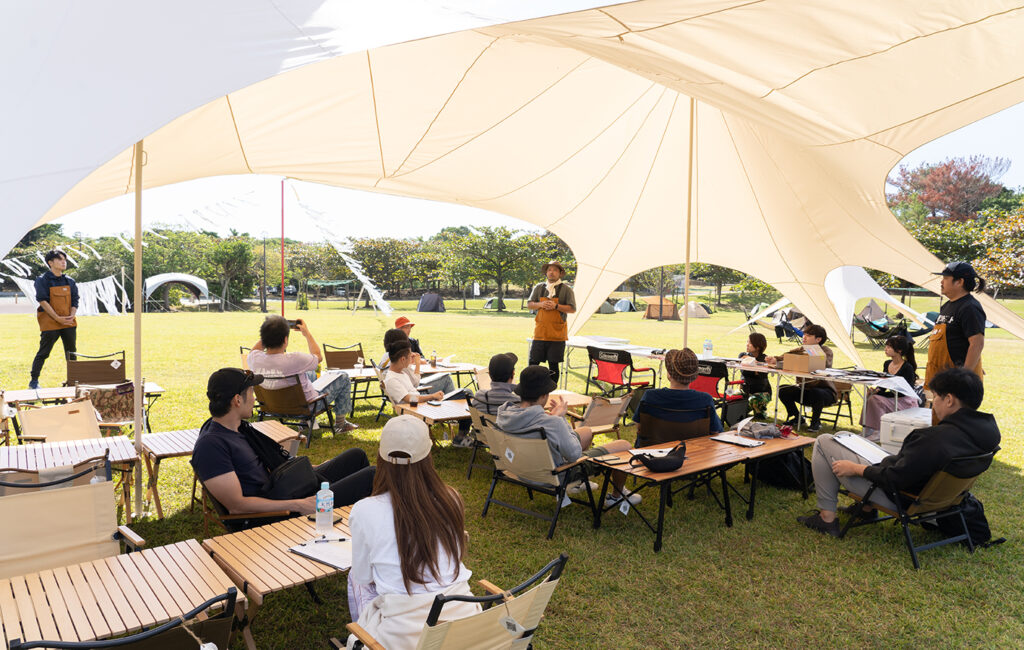
“Through play, we want people to become more aware of their bodies and minds, and to spread awareness of its effects. There is a sense of happiness that can only be obtained in nature, and having many options to immerse oneself in besides work enriches life. This is my personal experience. Being in nature makes me more positive about taking on new challenges,” Mr. Yamada says, explaining the driving force behind the business’s success. The motto “let’s give it a try” has been cultivated through outdoor experiences. “I would be delighted if Sotorist is recognized not just as a sharing service, but as a service that maximizes the potential of outdoor activities,” Mr. Yamada said. The goal is to be immersed in nature, while aiming for a light and prosperous future.
Interview and Japanese Text by Narabayashi Minako

